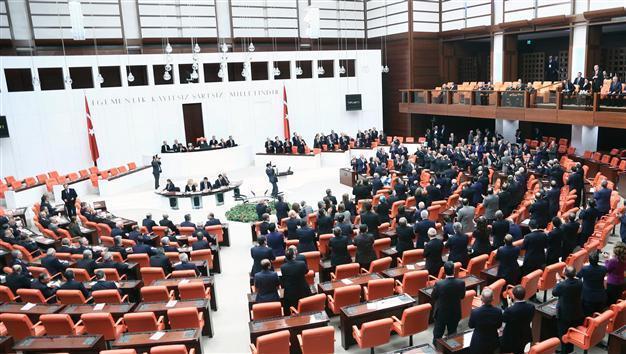First coalition test for opposition parties: Nominating a parliament speaker
Zeynep Gürcanlı - ANKARA

DHA Photo
The election of Turkey’s new parliament speaker is set to become a “coalition test” for the three smallest parties at the General Assembly, to see whether they can agree on the same name for the position.In the event that the Republican People’s Party (CHP), the Nationalist Movement Party (MHP) and the Peoples’ Democratic Party (HDP) cannot agree on a single candidate, a candidate from the Justice and Development Party (AKP) will be nominated as the speaker.
Although, the election of the Speaker of the Assembly has no direct connection to the formation of the government, it will be coalition test for the CHP, the MHP and the HDP in political terms.
The election of the speaker must be concluded within five days of the end of the nomination period. Before that, candidates from among the deputies are submitted within five days after the first session of the
Assembly, and the speaker is elected by secret ballot.
In the first two ballots, two-thirds of the total number of deputies (at least 367 out of 550) are required, while in the third ballot an absolute majority of the total number of deputies (at least 267 out of 550) are required.
In the event that an absolute majority cannot be obtained in the third ballot, a fourth ballot takes place between the two candidates who obtain most of the votes. In the fourth ballot, the candidate receiving the highest number of the votes will be elected as the speaker. If the CHP, the MHP and the HDP do not settle on a single candidate, an AKP deputy will become the speaker, as the only possible superior alternative to the AKP’s seat share in parliament is the sum of the three other parties’ seats.
Meanwhile, an HDP deputy will be assigned as a vice-speaker for the first time, as there must be four vice-speakers in total according to parliament’s internal rules.
The vice-speakers positions are allocated among the political parties, starting with the party with the highest share of seats, provided that two of the positions are designated to the party with an absolute majority. As no party secured an absolute majority of at least 276 seats in the June 7 election, the AKP, the CHP, the MHP and the HDP will each be given a vice-speaker, meaning that a deputy from the HDP will be assigned as a vice-speaker for the first time.
















